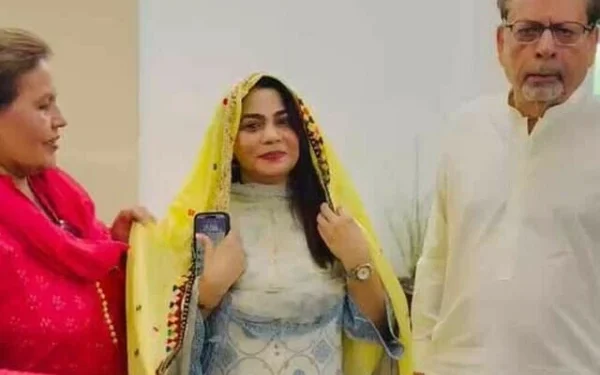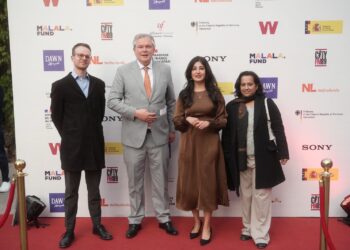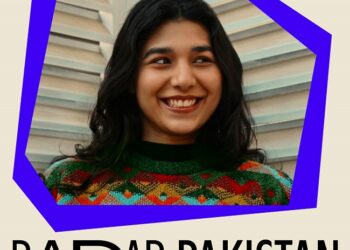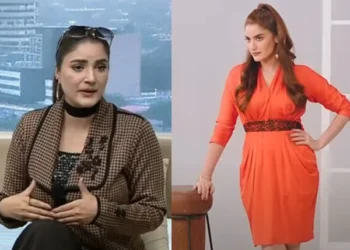The entertainment industry in Pakistan often witnesses moments of glamour, celebration, and cultural pride. However, disputes among well-known personalities sometimes capture headlines and spark debates in media circles. One such controversy emerged between renowned Sufi and folk singer Sanam Marvi and Ahmed Shah, the President of Arts Council of Pakistan Karachi, following an incident during a cultural program in Sukkur.
For several days, the disagreement appeared to be escalating, particularly after Sanam Marvi issued a legal compensation notice worth Rs 50 million against Ahmed Shah. Yet, in a positive turn of events, both sides have now reconciled. With the intervention of Sindh’s Provincial Culture Minister Syed Zulfiqar Ali Shah and celebrated writer Noorul Huda Shah, the dispute was peacefully resolved, misunderstandings were cleared, and both parties forgave each other.
Background of the Dispute
The Incident in Sukkur
The disagreement traces back to August 10, during a Sindh government-sponsored cultural program in Sukkur. According to Sanam Marvi, she faced inappropriate treatment during the event. She alleged that she had been pushed, insulted, and even threatened by Ahmed Shah, which she considered unacceptable not only as a professional artist but also as a woman representing the cultural fabric of Sindh.
The singer, known for her soulful renditions of Sufi poetry and folk music, felt deeply disrespected and humiliated. As a result, she decided to pursue legal action against the Arts Council President.
The Rs 50 Million Legal Notice
Sanam Marvi issued a legal notice demanding Rs 50 million in compensation. In the notice, she asked Ahmed Shah to formally apologize within a week or face further legal consequences. This created a storm in both mainstream and social media, with fans of the singer expressing solidarity with her and demanding accountability.
Ahmed Shah’s Response
Ahmed Shah, a prominent cultural figure who has been associated with the Arts Council of Pakistan Karachi for years, strongly rejected the allegations. He clarified that he had neither pushed Sanam Marvi nor insulted her. He insisted that there was no truth to the claims and that the situation may have been the result of a misunderstanding.
Ahmed Shah also emphasized his longstanding relationship with artists across Pakistan, including Sanam Marvi, highlighting his history of supporting cultural programs and promoting talent nationwide.
Intervention of Cultural Figures
Role of Syed Zulfiqar Ali Shah
The situation took a different turn when Sindh Culture Minister Syed Zulfiqar Ali Shah stepped in to mediate. Understanding the importance of both personalities in the cultural landscape of Sindh, he encouraged dialogue rather than confrontation.
The minister later shared a video on Facebook, where both Sanam Marvi and Ahmed Shah appeared together. This video became a symbol of reconciliation, putting an end to days of speculation and heated debates.
Role of Noorul Huda Shah
Veteran writer and cultural icon Noorul Huda Shah also played a vital role in bridging the gap. With her respected standing in Sindhi literature and arts, she persuaded both sides to set aside personal grievances in favor of cultural harmony.
Her involvement was particularly important because she has long advocated for unity and mutual respect among artists, considering them the custodians of Pakistan’s cultural identity.
The Reconciliation
Ahmed Shah’s Statement
In the reconciliation video, Ahmed Shah addressed Sanam Marvi with affection, calling her his “younger sister and daughter.” He acknowledged that their long-standing relationship had been temporarily strained due to a misunderstanding.
Ahmed Shah further admitted that while he personally did not insult or threaten her, his staff’s inappropriate behavior may have hurt her feelings. He expressed regret over the incident and reaffirmed his respect for her contribution to Sindhi and Pakistani culture.
Sanam Marvi’s Statement
Sanam Marvi, speaking in Sindhi language, reciprocated the goodwill gesture. She announced that she had decided to withdraw her allegations and compensation notice in line with the traditions of Sindh, which emphasize forgiveness, reconciliation, and respect for elders.
She thanked Syed Zulfiqar Ali Shah and Noorul Huda Shah for their crucial role in resolving the matter. Expressing gratitude, she stated that she remained committed to her art and to the people of Sindh who have always supported her.
Public and Media Reaction
Social Media Buzz
The dispute had quickly gone viral on social media platforms, with hashtags in support of both Sanam Marvi and Ahmed Shah trending for several days. Many fans sided with Sanam Marvi, citing the importance of respecting female artists, while others defended Ahmed Shah’s reputation as a cultural leader.
After the reconciliation, the response was largely positive. Social media users welcomed the resolution and appreciated the role of mediators in avoiding prolonged legal and personal battles.
Media Coverage
Mainstream media outlets in Pakistan covered the issue extensively, with talk shows and news bulletins debating whether artists are provided with the respect they deserve during official programs. The reconciliation, however, shifted the narrative toward unity, forgiveness, and cultural solidarity.
Broader Context: Respect for Artists in Pakistan
Challenges Faced by Performers
The incident reignited discussions about how artists and performers are treated in Pakistan. Despite being cultural ambassadors, many artists often complain about lack of proper facilities, disrespect at official events, and inadequate security arrangements.
Sanam Marvi’s grievance resonated with many performers who have experienced similar situations but chose to remain silent to avoid controversies.
Need for Cultural Sensitivity
Cultural experts argue that organizers of official and private events must adopt stricter codes of conduct to ensure artists are treated with dignity. Incidents like this highlight the need for training staff, improving event management standards, and promoting an environment of mutual respect.
Profiles of Key Personalities
Sanam Marvi
Sanam Marvi is one of Pakistan’s most celebrated folk and Sufi singers, admired for her soulful renditions of the poetry of Shah Abdul Latif Bhittai, Bulleh Shah, and Sachal Sarmast. She has performed internationally and represented Pakistan on global stages, earning recognition for keeping Sufi traditions alive.
Her fans see her as a cultural bridge between Sindhi, Punjabi, and Urdu-speaking communities, as she performs across multiple languages and genres.
Ahmed Shah
Ahmed Shah, as President of the Arts Council of Pakistan Karachi, has played a vital role in promoting arts, literature, and culture in the country. Under his leadership, the Arts Council has hosted international literature festivals, theatre productions, and concerts, giving artists from diverse backgrounds a platform to showcase their talent.
Despite occasional controversies, he remains an influential figure in Pakistan’s cultural scene.
Lessons from the Dispute
The episode between Sanam Marvi and Ahmed Shah provides several lessons:
- Importance of Communication – Misunderstandings can escalate into major disputes if not resolved quickly through dialogue.
- Role of Mediators – Respected figures like Syed Zulfiqar Ali Shah and Noorul Huda Shah can play an essential role in bridging differences.
- Respect for Artists – Incidents like this highlight the urgent need to ensure artists feel safe and valued at cultural events.
- Cultural Traditions of Forgiveness – The resolution reflects Sindh’s tradition of resolving conflicts through reconciliation rather than prolonged hostility.
Conclusion
The reconciliation between Sanam Marvi and Ahmed Shah marks a welcome end to what could have become a prolonged legal and personal battle. With the withdrawal of the Rs 50 million compensation notice and the public display of mutual respect, both personalities demonstrated maturity and cultural sensitivity.
This outcome not only prevents further division within Pakistan’s artistic community but also reinforces the values of dialogue, forgiveness, and unity.
As Sanam Marvi continues her journey as a voice of Sufi music and Ahmed Shah carries on his role as a cultural promoter, their reconciliation stands as a reminder that misunderstandings can be overcome when mutual respect and traditions of harmony prevail.

























